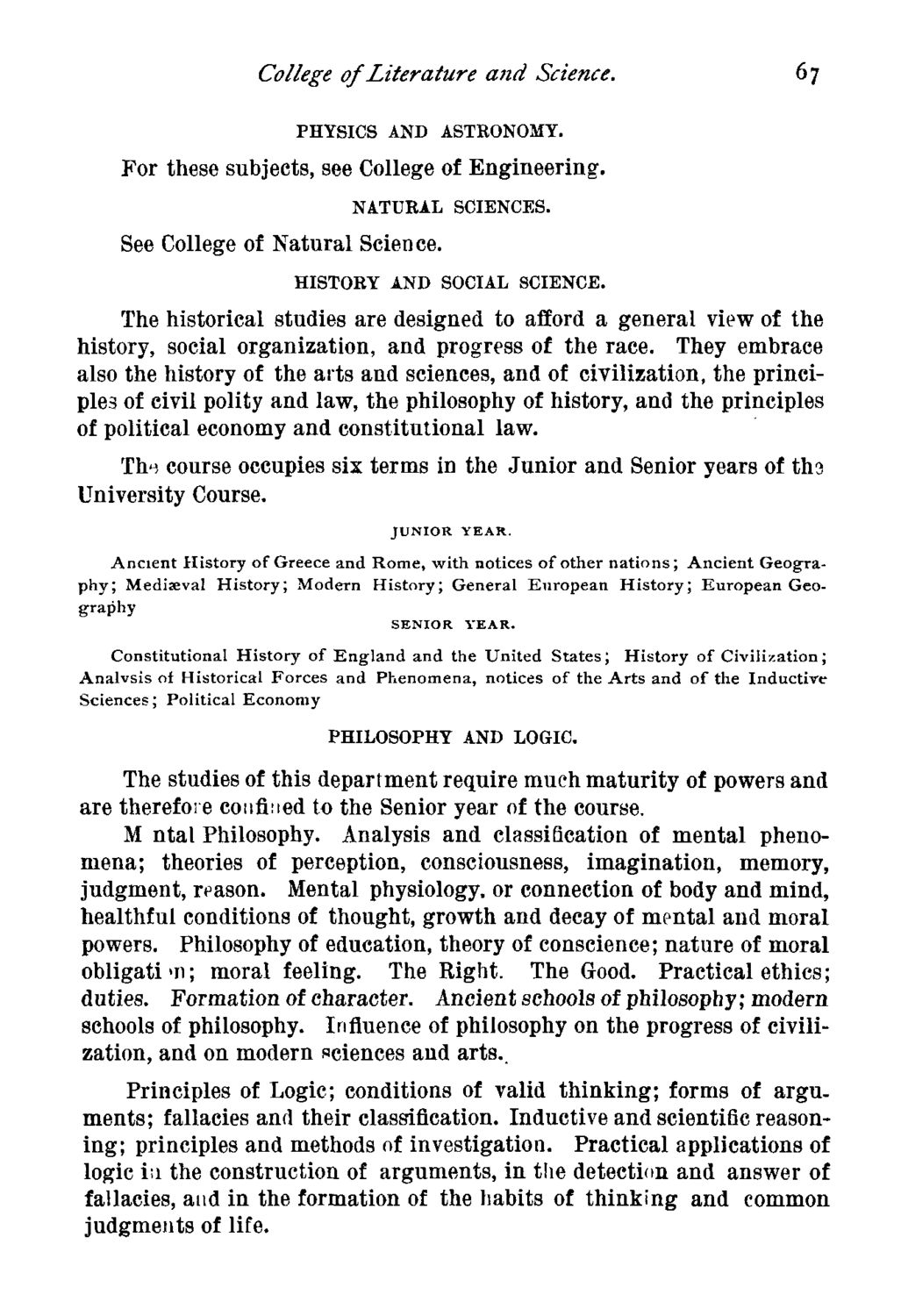Caption: Course Catalog - 1883-1884
This is a reduced-resolution page image for fast online browsing.

EXTRACTED TEXT FROM PAGE:
College of Literature and Science. PHYSICS AND ASTRONOMY. 67 For these subjects, see College of Engineering. NATURAL SCIENCES. See College of Natural Science. HISTORY AND SOCIAL SCIENCE. The historical studies are designed to afford a general view of the history, social organization, and progress of the race. They embrace also the history of the arts and sciences, and of civilization, the principles of civil polity and law, the philosophy of history, and the principles of political economy and constitutional law. Th", course occupies six terms in the Junior and Senior years of th9 University Course. JUNIOR YEAR. Ancient History of Greece and Rome, with notices of other nations; Ancient Geography; Mediseval History; Modern History; General European History; European Geography SENIOR YEAR. Constitutional History of England and the United States; History of Civilization; Analvsis of Historical Forces and Phenomena, notices of the Arts and of the Inductive Sciences; Political Economy PHILOSOPHY AND LOGIC. The studies of this department require much maturity of powers and are therefore confined to the Senior year of the course. M ntal Philosophy. Analysis and classification of mental phenomena; theories of perception, consciousness, imagination, memory, judgment, reason. Mental physiology, or connection of body and mind, healthful conditions of thought, growth and decay of mental and moral powers. Philosophy of education, theory of conscience; nature of moral obligati'ii; moral feeling. The Right. The Good. Practical ethics; duties. Formation of character. Ancient schools of philosophy; modern schools of philosophy. Influence of philosophy on the progress of civilization, and on modern sciences and arts. Principles of Logic; conditions of valid thinking; forms of arguments; fallacies and their classification. Inductive and scientific reasoning; principles and methods of investigation. Practical applications of logic in the construction of arguments, in the detection and answer of fallacies, and in the formation of the habits of thinking and common judgments of life.
|